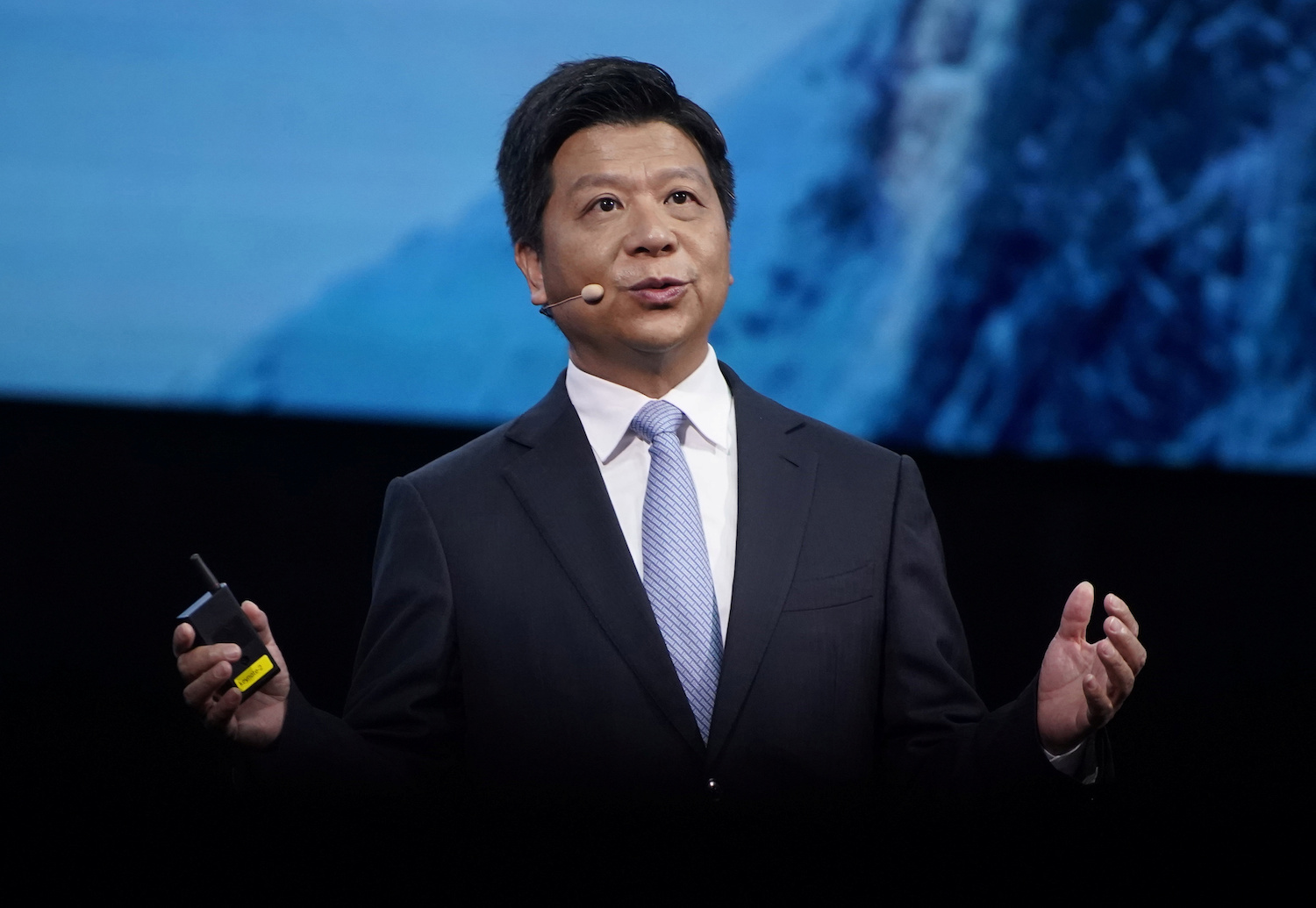(ATF) Guo Ping, the new chairman of Huawei, has appealed to Qualcomm, the US corporation that produces semiconductor parts and products linked to software and wireless technology, for help to secure its chips for his company’s mobile phones.
Guo, who spoke to the media on Wednesday (Sept 23) at the Huawei Full Connect Conference 2020, said Huawei was keen to use Qualcomm chips in its phones – if the San Diego-based group can get a license from Washington to get around President Trump’s ban on dealing with the Chinese conglomerate.
The new president, who looked sharp in a suit and tie, said Huawei’s supply chain was under attack from the United States and called on Washington to reconsider its trade restrictions, saying they were hurting suppliers globally.
“The US has modified their sanctions for the third time and that has indeed brought great challenges to our production and operations,” Guo Ping said.
“We hope the US government can reconsider its policy and if the US government allows it we are still willing to buy products from US companies,” Guo said on the sidelines of its annual Huawei Connect conference.
When asked by a reporter: “How long can Huawei’s reserves of chips continue to be supported?”, Guo Ping revealed that Huawei only rushed some of its reserves into the warehouse on September 10. So, the specific data was still being evaluated, he said, but it had sufficient chip reserves for its current needs.
“As for mobile phone chips, Huawei consumes hundreds of millions of them each year. Therefore, Huawei is actively looking for ways to resolve mobile phones (issues). Some US manufacturers are also actively seeking US government applications,” he said.
In a subsequent question and answer session, Guo Ping said that once a license is obtained, Huawei was willing to use Qualcomm chips in its mobile phones.
“We hope the US government can reconsider its policy and if the US government allows it we are still willing to buy products from US companies,” Guo said on the sidelines of its conference.
Currently, it is not clear why the US would agree this, unless it is a move to relax bilateral tensions, or whether parts for the mobile handset trade are less of a security concern than the 5G infrastructure that the Chinese group also produces.
Top quality chips
Qualcomm’s Snapdragon chips are considered to be the top industry standard – see yesterday’s story on Asia Times Financial.
According to various media reports, overseas suppliers such as Qualcomm, Sony, Samsung, SK Hynix and others have submitted applications to the United States government for permission to sell some parts or products to Huawei.
So far, only AMD and Intel have been approved to continue to supply Huawei with equipment parts, Sina Finance reported.
Huawei has said that from September 15 it would stop manufacturing its most advanced chips under its Kirin line which power its high-end phones. Analysts expect its existing supply of Kirin chips will run out next year.
Consumers have rushed to buy Huawei phones amid concern its mobile division may be about to fold. Vendors say that prices have spiked by as much as 500 yuan ($74) for some devices, according to Reuters.
Washington has shown little sign that it is willing to back down from its fight with Huawei, which comes at a time when relations between the United States and China are at their worst in decades.
US officials said last month the government would expand a programme it called “Clean Network” to prevent various Chinese apps and telecoms companies from accessing sensitive information on American citizens and businesses.
Taiwan’s leader denigrated by ex-rival
Meanwhile, in a video interview broadcast in Chinese media outlets, the former president of Taiwan Ma Ying-jeou, who was in power until 2016, whose KMT party always had cosy ties with the PRC, said Taiwan should not be the bargaining chip in Sino-US relations. He claimed that Taiwan’s current leader was acting like she was the “wife” of the USA, rather than being a bridge.
However, Ma is a discredited figure in Taiwan, and appearing in Chinese propaganda will not boost support for his party at home.
Ma’s KMT lost power to Tsai Ing-wen, head of the Democratic Progressive Party, which secured a 25% majority and Tsai won various accolades.
In the current state of affairs with Sino-US relations ‘decoupling’, the US and other nations are building closer links to Taiwan, which is home to a thriving top-end microchip manufacturing industry.
One of its biggest companies is TSMC, which analysts say has agreed to abide by the US ban in an effort to allow it to do more business with US companies in the future.
With reporting by Reuters
























